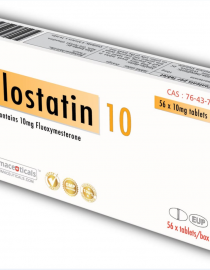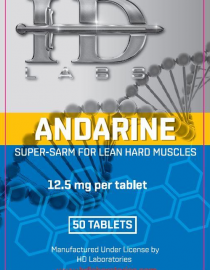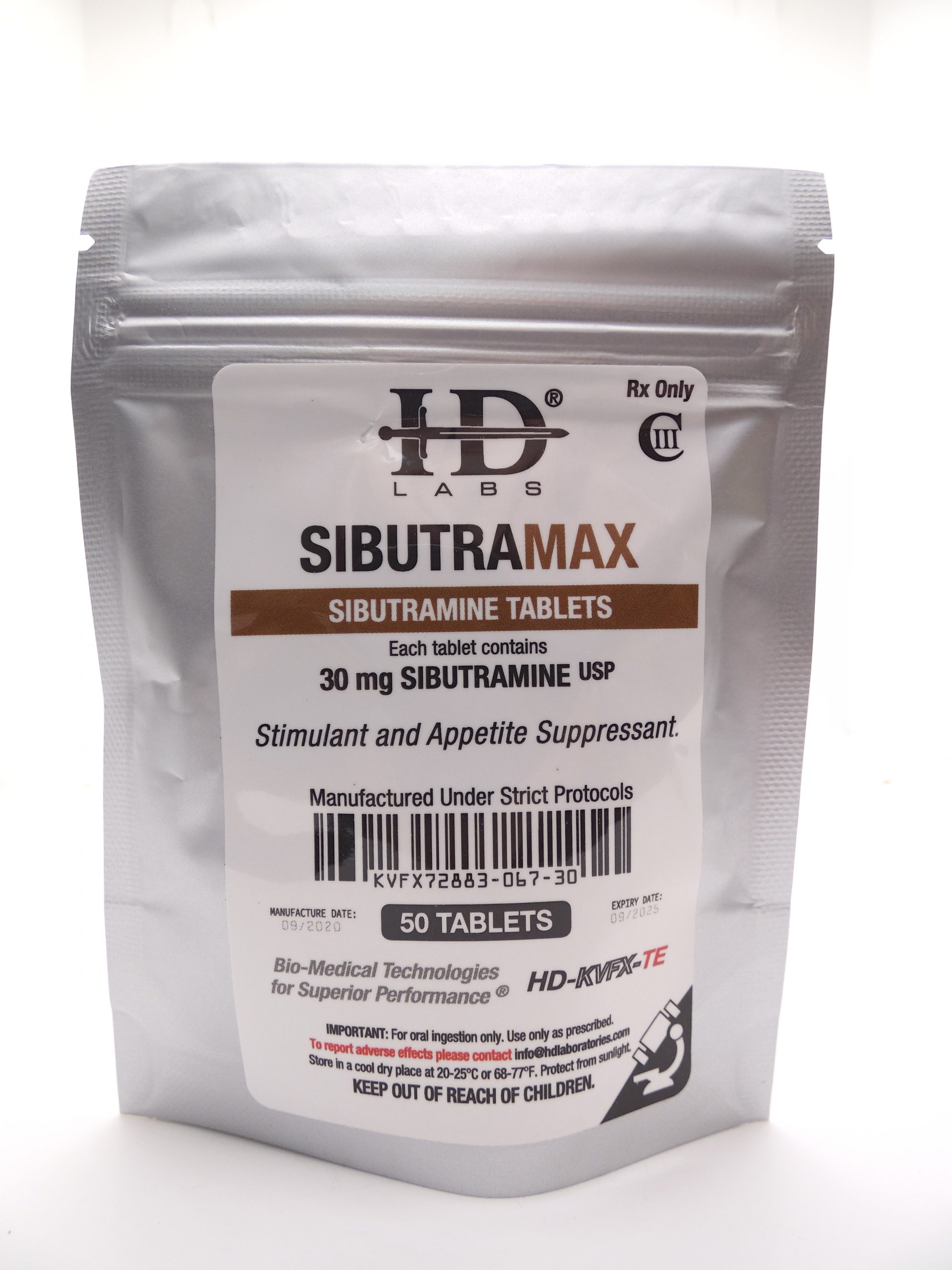- You have no items in your shopping cart
- Continue Shopping
Sibutralean (Sibutramine) 30mg – HD Labs Sibutramax
R250.00
- Strength

- Muscle Gain

- Fat/Water Loss

- Side Effects

- Keep Gains

Dosage: 30 mg – 60 mg / day
Quantity: 50 Tabs
Chemical Name: Sibutramine
Product may differ from picture
Description
Sibutra Max (Sibutramine) assists with weight-loss by altering neurotransmitters within the brain. Neurotransmitters are chemicals that are produced and released by nerves in order to communicate with other nerves. Released neurotransmitters may attach to other nerves or they may be taken up again by the nerves that release them, a process termed reuptake.
Sibutramine blocks the reuptake of the neurotransmitter’s dopamine, norepinephrine, and serotonin. Blocking the reuptake of neurotransmitters alters the balance of neurotransmitters within the nerve cells and thereby affect nerve function and interaction.
Patients taking Sibutra Max (sibutramine) may achieve a 5-10% reduction from their baseline weight. Additionally, sibutramine-assisted weight loss has been accompanied by improvement in blood lipids (e.g, Cholesterol).
After taking the 30 mg tablet of sibutramine in the morning you will get instantly very thirsty. Consequently, make sure you consume as much water as possible when this thirst sets in. Some people fight this thirst. This reduces the positive effects of sibutramine. As you increase your water intake sibutramine better activated.
Fat burning results are more increased. Fighting the thirst without water consumption decreases the appetite suppressing characteristics. People who consumed a lot of water get better results. Therefore, without water uptake you get very hungry late afternoon. When the product wears off you then defeat the object by consuming large amounts of food. With the increase of water late afternoon hunger is not an issue.
Sibutralean affects chemicals in the brain that affect weight maintenance.
Sibutralean is used together with diet and exercise to treat obesity that may be related to diabetes, high cholesterol, or high blood pressure.
Dosage Instructions
30mg – 60mg / Day.
Side Effects
Sibutramine substantially increases blood pressure and/or pulse rate in some patients. Regular monitoring of blood pressure and pulse rate is required when prescribing sibutramine.
In placebo-controlled obesity studies, sibutramine 5 to 20 mg once daily was associated with mean increases in systolic and diastolic blood pressure of approximately 1 to 3 mm Hg relative to placebo, and with mean increases in pulse rate relative to placebo of approximately 4 to 5 beats per minute. Larger increases were seen in some patients, particularly when therapy with sibutramine was initiated at the higher doses.
Blood pressure and pulse should be measured prior to starting therapy with sibutramine and should be monitored at regular intervals thereafter. For patients who experience a sustained increase in blood pressure or pulse rate while receiving sibutramine, either dose reduction or discontinuation should be considered. Sibutramine should be given with caution to those patients with a history of hypertension and should not be given to patients with uncontrolled or poorly controlled hypertension.
Common side effects
In general, sibutramine is well-tolerated. The most common side effects have been:
- Constipation
- Inability to sleep
- Headache
- Dry mouth
- Abdominal Pain
- Acne
- Rash
- Chest Pain
- Anxiety
- Joint Pain
- Back Pain
- Excitation
- Depression
- Sweating
- Dizziness
- Drowsiness
- Changes in taste
- Irregular or painful menstrual periods
- Flu-like syndrome
- Increased cough
- Muscle pain
- Nausea
- Vomiting
- Neck pain
- Nervousness
- Palpitations
- Sore throat
- Sinus congestion




